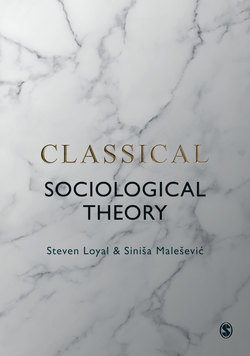Читать книгу Classical Sociological Theory - Sinisa Malesevic - Страница 19
На сайте Литреса книга снята с продажи.
Against Democracy
ОглавлениеPlato’s thinking constitutes a worldview, a political vision aimed at transforming the world. However, this does not necessarily mean that his ideas and concepts are bereft of value. Wood and Wood (1978) argue that Plato’s thought constitutes the ideological standpoint of a declining landed aristocracy. Prior to and following the death of Pericles, aristocratic values no longer held sway in Athenian politics, exacerbating the sense of injustice caused by the loss of large swathes of land during the Peloponnesian War. In such a context, the aristocracy became increasingly conscious of their identity and sought to distance themselves from the growing numbers of traders, manufacturers, artisans, shopkeepers and wage labourers. According to Wood and Wood they constituted:
‘gentlemen’ (kalot kagalhoi) and the ‘better sort’ (chrestoi) in contrast to ‘bad men’ (poneroi), prosperous business men (agorawi), and the nouveau riche of the commercial and manufacturing world or neoploutoi, a term beginning to be used frequently during the period. (1978: 2)
In the context of a humiliating defeat in the Peloponnesian War, Socrates and Plato as part of the kalot kagalhoi, or beautiful people, sought to reform and revitalise aristocratic values to provide a new foundation for civic and political life, a counter-revolutionary ideology, that although not fitting wholly aristocratic values, nevertheless shared in their condemnation of the rule of the lower classes.
That Plato and the members of his Academy were neither disinterested nor uninvolved in the practical politics of their time is illustrated by their intervention in Syracuse. The Academy was not only a teaching and research institution but, according to Gouldner (1967), the first intellectual colloquium of rational policy development. It was, Gouldner argues, ‘the RAND corporation of Antiquity’ (1967: 157), though such a reductionist view of Plato’s political position has been challenged by others (Saunders, 1986; Euben, 1980). It has been argued that, for example, Plato was not simply a proponent of aristocratic values but championed forms of communism, austere living, and a rejection of material objects that were incompatible with an aristocratic value system.
